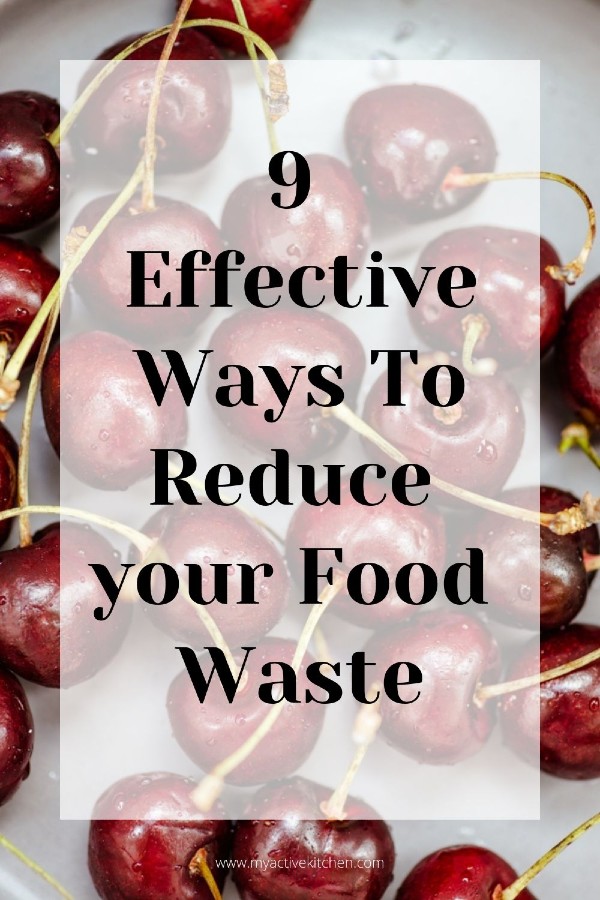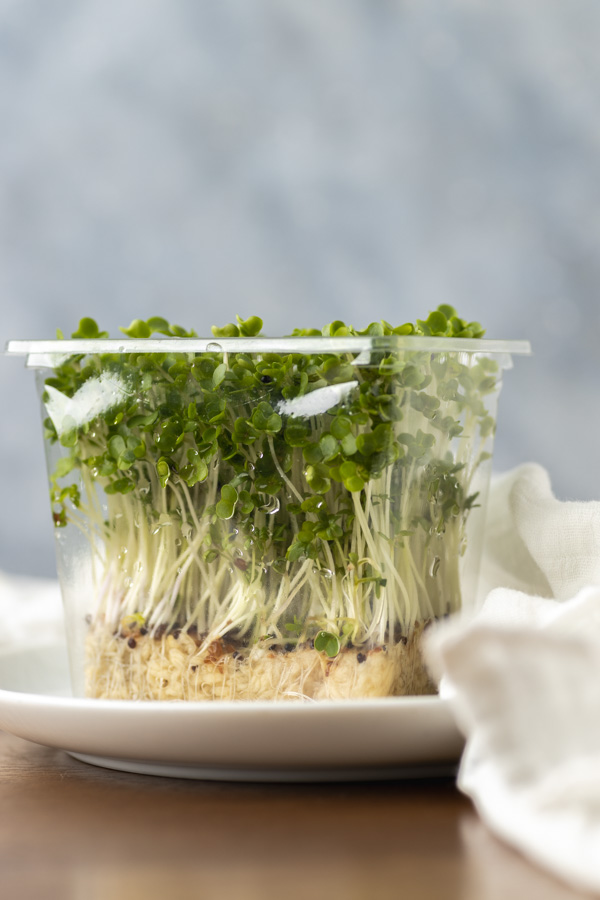Learn how to reduce food waste at home with these easy practical steps.
One of the ways to avoid and reduce food waste is not by overeating! Yes, there are other practical and more effective ways than stuffing your stomach. Food waste is a common and big problem than we realize and most times, our excuse is that it is unavoidable.
Well, you are probably not alone and I can relate to it too. We have a duty of care to respect food, yes, you should respect food and try not to be wasteful.
Food waste is most common in the western world than in any other part of the world. According to WRAP UK, the UK produces around 9.5 million tonnes of food waste every year and over 70% of that waste is from the household. While the US produces food waste of about 40 million tonnes every year.

1. Plan ahead and be organised
The first which is likely the most obvious reason for food waste is not planning ahead or staying organized.
Always plan ahead and make a list! Sometimes you may even have to shop from your freezer before the next buy. The best place where food is buried in the house is the bottom of the freezer, especially a deep freezer. Yes, and that should be your first point of call when you are running low on food in the house.
You would be surprised about forgotten gems hidden in the freezer and the back of the cupboard. Make it a duty to check out these two places as they would help you make informed decisions about what should be on your food shopping list.
If it helps, make a weekly food menu. That way you know exactly what you need to add to your shopping list
2. Don't over buy
Personally, I know this is easier said than done, especially when the shops are having BOGOF deals or special buys.
If your shopping list says 4 cans of baked beans and there is a deal to buy 8 cans for £2 instead of 1 pack for £1.30. Your brain would automatically likely go for the 2 packs.
The question you should ask yourself before making such a purchase is if you really need 8 cans of baked beans. Whilst you are on it, remember to think of the space you would be storing such food items.
If the answer to the questions is no or you can't justify such a purchase, then you are best sticking to the items on your list.
There is no hard or fast rule to this but sticking to what is on the list means you are not overbuying and you are truly buying what you need and not what you want. More, importantly, you would likely have less or no food to throw away when you cultivate this practice.
3. Is that fruit and veggies truly spoilt
Before you throw out that fruit or vegetables, think about it, because a fruit or vegetable is no longer fresh doesn't mean it's not consumable. Some vegetables such as potatoes, butternut squash, carrots, peppers, have a long shelf life and can last for weeks on the countertop.
Just before your not-so-fresh-looking produce hits the bin, do them the honors of washing and cutting them up to check if it is still good or not.
For example, sprouts on potatoes don't mean bad as long as it is not green then it is still perfectly fine to use. Simply cut off the sprouted area and that goes for all other vegetables and fruit too.
The outer part of cabbage may look weird but thankfully, if you peel off some layers, most times the inner part is always still good to use. blend leftover ginger or garlic into paste and store in the freezer.
If your bananas begin to go spotty, make some banana bread or muffins or cut them up, store them in the freezer, and use them in smoothies as needed.
4. Freeze leftover vegetable and fruits
I am guilty of this, recently, I decided to start freezing my leftover herbs and fruits. For the herbs, I blend them up to make my green seasoning and if I have an abundance of say Basil, I make pesto.
Leftover onions can be chopped and stored in the freezer, most of these herbs can be used from frozen. While some may lose color when stored for a longer period of time, it is still perfectly fine to use.
You can blend up herbs and freeze them in an ice tray, that way you can use them as needed and is convenient too.
Other ways to use up your veggies to reduce food wastage is by making stir-fries, soups, smoothies, or stock.

5. Store leftover food properly and use them up ASAP
Store and use leftover food within 3 days for optimal freshness. It is important to make sure the food is cooled before storing it in the fridge.
Also, make sure to store the food away as soon as it is cooled to avoid bacteria growth. Use clear bowls to store these foods in the fridge, that way, you do not forget to use them.
If it helps, set a day in the week to use up leftover foods and veggies in the fridge. It may mean feeding the family different meals on that day but the end goal is to avoid food waste, save money and save the planet.
6. Freeze and refrigerate correctly
Make sure your freezer and fridge temperature is set correctly. Your fridge temperature should be set at about 0° to 5°C and freezer at -18°C or lower.
Setting the temperature of the fridge or freezer incorrectly will encourage the rapid growth of bacteria. Remember bacteria can’t be seen with plain eyes.
7. Store fresh food for longer and cooked food for a shorter period of time.
Depending on the time of food it is, most cooked food once properly cooled can be stored in the freezer for up to 3 months.
While fresh foods, say chicken or fish may be stored longer for up to 6 months, make sure you label the food accordingly and stored correctly in the right containers or packs.
Facts: do you know you can store bread, cheese, eggs, and milk in the freezer?
Fun fact: frozen bread can be cooked directly in the toaster, no need to let it defrost.
8. Know the difference between sell by, use by and best before dates
Understanding what the terminology on your food package or label says can help you reduce food waste and make informed decisions on how to store, preserve and dispose of your food properly.
Use by date simply means it will be unsafe to consume the food after the specified date on the label or package. It mostly applies to fresh food, cooked food, and any highly perishable food. Avoid eating food past the use-by dates to avoid food poisoning or worse.
In order to avoid food waste, you can still freeze food on its use-by date, provided it is still good.
Best before simply means the quality of the food can’t be guaranteed after the date on the labels or package. In this case, you can smell and taste the food to check if it is still consumable. This will mostly apply to canned food, frozen foods, or dried food.
9. Donate the food you do not want to the food bank
It is charitable to donate food items to the food bank and you can do so by checking your local area for the nearest one to you.
Alternatively, search online for the nearest one or call the charity organization if they are able to collect from your home. It is a worthy cause to think about! Please do not donate expired food items to your food banks.
Important take home
I hope you have learned one or two things that can help you reduce your food waste and make this world a better place. If this is a new thing for you, then take it one day at a time, just remember every little help. Above all, change starts with you and me!
Thank you and I will see you in my next post
much love
Ajoke x

Wow..I had no idea you could store up leftover onions. This was really helpful Ajoke. Eshe❤️